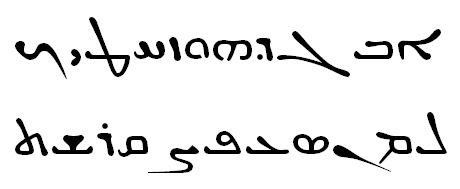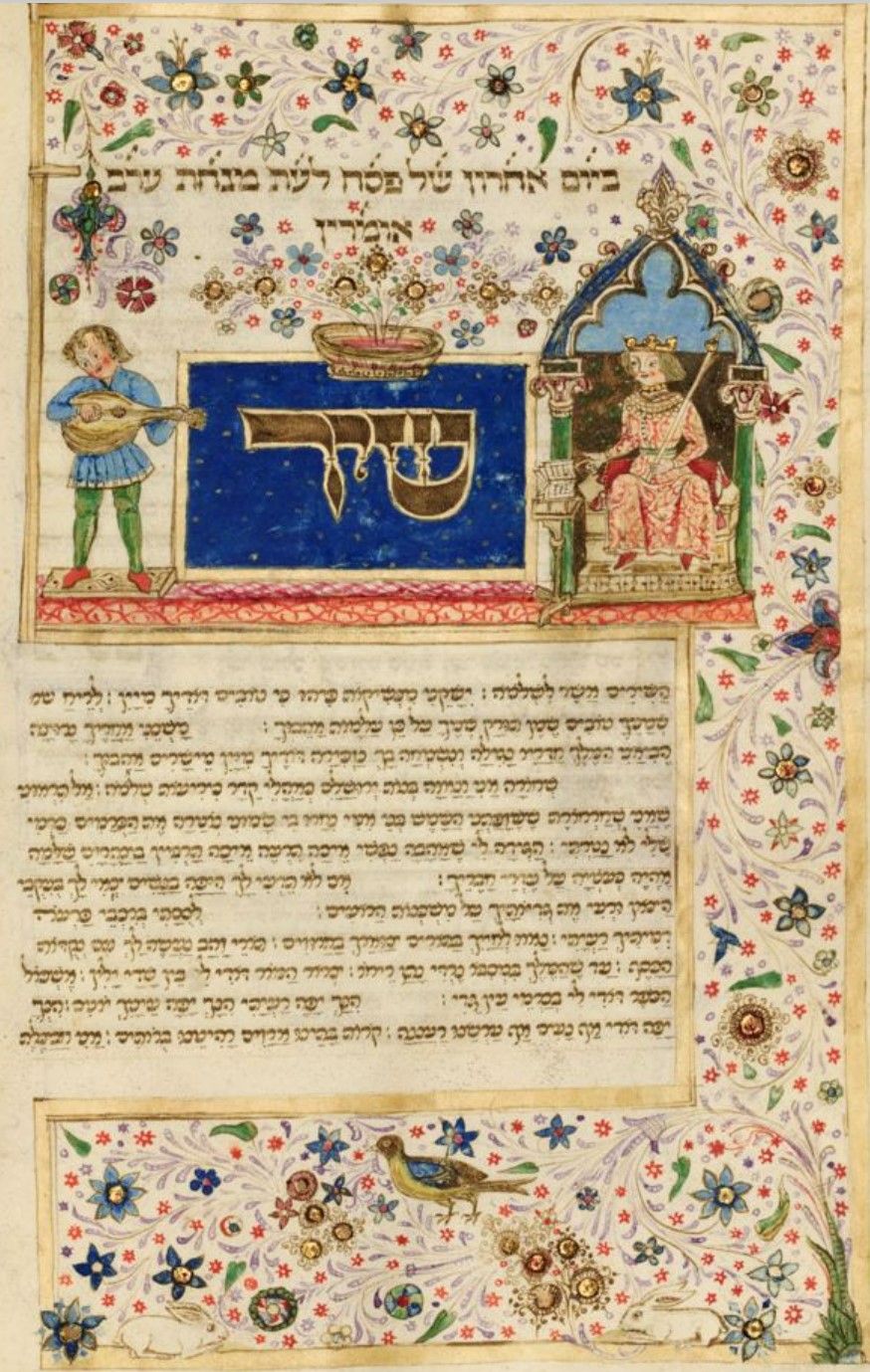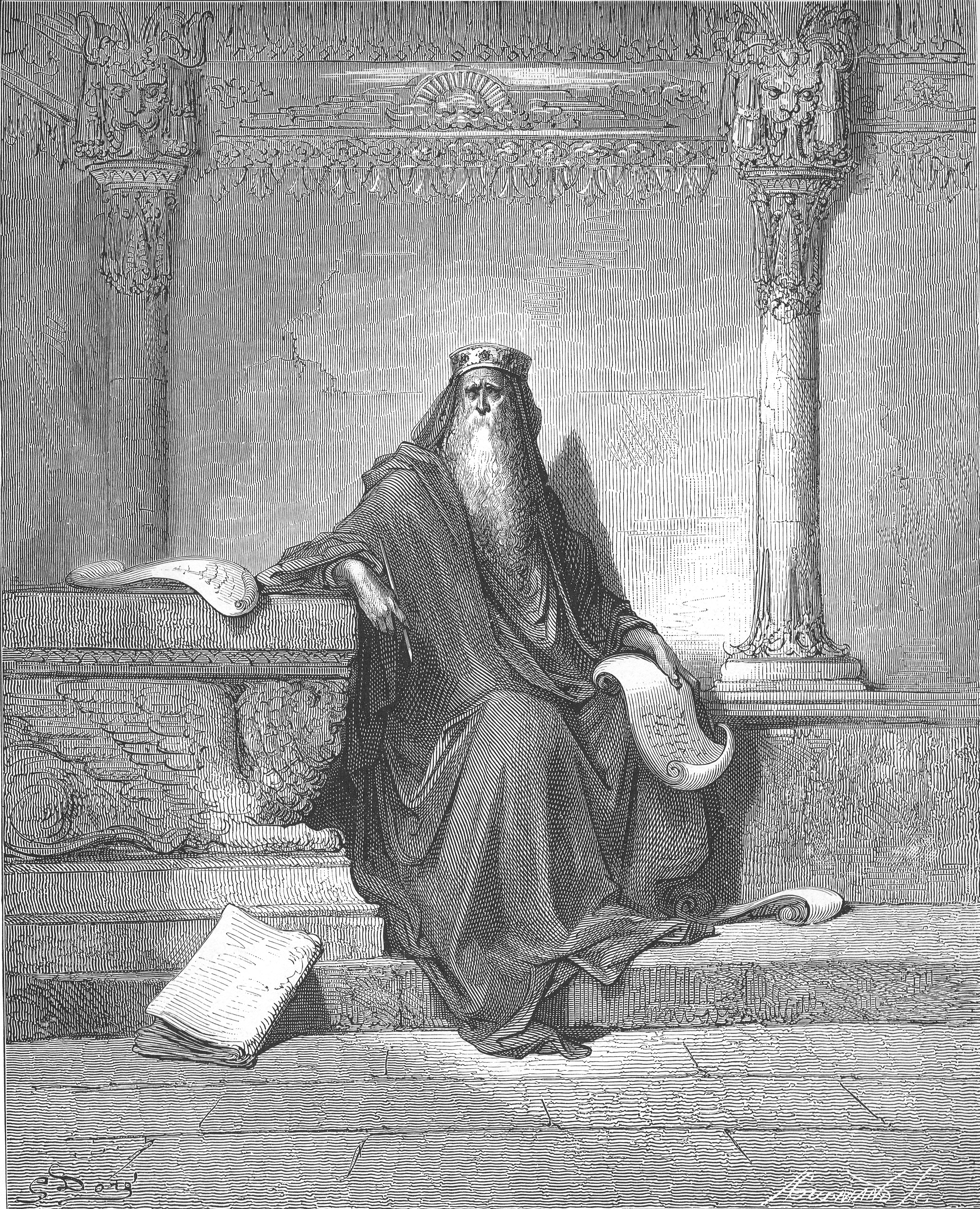|
Isho'dad Of Merv
Mar Ishodad of Merv (; fl. AD 850) was a bishop of Hdatta during the Abbasid Caliphate (near current-day Mosul, Iraq) and prominent theologian of the Church of the East, best known for his ''Commentaries'' on the Syriac Bible. Life Very little is known of Ishoʿdad's life, but a few details have survived in annotations to the list of patriarchs compiled by Mari ibn Suleiman and Amr ibn Matta. His epithet "of Merv" may denote a birthplace, meaning that he was born in the city of Merv in Khorasan, but this inference remains conjectural: his relationship to Merv is not known with certainty.. A member of the Church of the East—historically, though inaccurately, known as the Nestorian church—he became bishop of Hdatta,. a town close to the mouth of the Great Zab in modern Iraq, perhaps in 837 after Abraham II of Seleucia-Ctesiphon left the see to become Patriarch of the Church of the East. Ishodad was a candidate for the patriarchate of the Church of the East around 853 a ... [...More Info...] [...Related Items...] OR: [Wikipedia] [Google] [Baidu] |
Mar (title)
Mar ( ', written with a silent final yodh), also Mor in Western Syriac, is an Aramaic word meaning "lord, my lord". The corresponding feminine forms in Syriac are ''Mart'' and ''Mort'' for "my lady" (, '). A similar word Mar, meaning “lord,” is used in . These titles are used in Judaism and Syriac Christianity. In Christianity It is a title of reverence in Syriac Christianity, where the title is placed before the Christian name of saints, as in Mar Aprem / Mor Afrem for Ephrem the Syrian, and Mart / Mort Maryam for St Mary. It is given to all saints and is also used in instead of "Most Reverend", just before the name in religion taken by bishops. An example of the title ''mar'' being applied to a saint outside of the Assyrian tradition is found in Ethiopia where the Emperor of Ethiopia, Emperor Gelawdewos was bestowed with it after falling in battle during his decades long conflict with Muslim invaders. The title of ''Moran Mor / Maran Mar'' is given to the ''Patriarch'' an ... [...More Info...] [...Related Items...] OR: [Wikipedia] [Google] [Baidu] |
Syriac Language
The Syriac language ( ; ), also known natively in its spoken form in early Syriac literature as Edessan (), the Mesopotamian language () and Aramaic (), is an Aramaic#Eastern Middle Aramaic, Eastern Middle Aramaic dialect. Classical Syriac is the academic term used to refer to the dialect's literary usage and standardization, distinguishing it from other Aramaic dialects also known as 'Syriac' or 'Syrian'. In its West-Syriac Rite, West-Syriac tradition, Classical Syriac is often known as () or simply , or , while in its East-Syriac Rite, East-Syriac tradition, it is known as () or (). It emerged during the first century AD from a local Eastern Aramaic languages, Eastern Aramaic dialect that was spoken in the ancient region of Osroene, centered in the city of Edessa. During the Early Christian period, it became the main literary language of various Aramaic-speaking Christian communities in the historical region of Syria (region), Ancient Syria and throughout the Near East. As ... [...More Info...] [...Related Items...] OR: [Wikipedia] [Google] [Baidu] |
Song Of Songs
The Song of Songs (), also called the Canticle of Canticles or the Song of Solomon, is a Biblical poetry, biblical poem, one of the five ("scrolls") in the ('writings'), the last section of the Tanakh. Unlike other books in the Hebrew Bible, it is erotic poetry; lovers express passionate desire, exchange compliments, and invite one another to enjoy. The poem narrates an intense, poetic love story between a woman and her lover through a series of sensual dialogues, Dream, dreams, Metaphor, metaphors, and warnings to the “daughters of Jerusalem” not to awaken love before its time. Modern scholarship tends to hold that the lovers in the Song are unmarried, which accords with its ancient Near East context. The women of Jerusalem form a Greek chorus, chorus to the lovers, functioning as an audience whose participation in the lovers' erotic encounters facilitates the participation of the reader. Most scholars view the Song of Songs as erotic poetry celebrating human love, not di ... [...More Info...] [...Related Items...] OR: [Wikipedia] [Google] [Baidu] |
Book Of Ruth
The Book of Ruth (, ''Megillath Ruth'', "the Scroll of Ruth", one of the Five Megillot) is included in the third division, or the Writings ( Ketuvim), of the Hebrew Bible. In most Christian canons it is treated as one of the historical books and placed between Judges and 1 Samuel. It narrates the story of Naomi and her daughter-in-law Ruth, who return to Bethlehem after the deaths of their husbands, where Ruth's loyalty to Naomi leads to her marriage to Boaz. Their son Obed becomes the grandfather of King David. Written in Hebrew during the Persian period (c. 550–330 BCE), the book is generally considered by scholars to be a work of historical fiction. Evangelical scholarship holds that the book is a historical short story. The book is held in esteem by Jewish converts, as is evidenced by the considerable presence of Boaz in rabbinic literature. It also functions liturgically, as it is read during the Jewish holiday of Shavuot ("Weeks"). Structure The boo ... [...More Info...] [...Related Items...] OR: [Wikipedia] [Google] [Baidu] |
Ecclesiastes
Ecclesiastes ( ) is one of the Ketuvim ('Writings') of the Hebrew Bible and part of the Wisdom literature of the Christian Old Testament. The title commonly used in English is a Latin transliteration of the Greek translation of the Hebrew word ( or ). An unnamed author introduces "The words of Kohelet, son of David, king in Jerusalem" (Ecclesiastes 1:1, 1:1) and does not use his own voice again until the final verses (12:9–14), where he gives his own thoughts and summarises the statements of Kohelet; the main body of the text is ascribed to Kohelet. Kohelet proclaims (1:2) "Vanity of vanities! All is futile!" The Hebrew word , 'vapor' or 'breath', can figuratively mean 'insubstantial', 'vain', 'futile', or 'meaningless'. In some versions, vanity is translated as 'meaningless' to avoid the confusion with the other definition of vanity. Given this, the next verse presents the basic existential question with which the rest of the book is concerned: "What profit can we show for a ... [...More Info...] [...Related Items...] OR: [Wikipedia] [Google] [Baidu] |
Books Of Kings
The Book of Kings (, ''Sefer (Hebrew), Sēfer Malik, Məlāḵīm'') is a book in the Hebrew Bible, found as two books (1–2 Kings) in the Old Testament of the Christian Bible. It concludes the Deuteronomistic history, a history of ancient Israel also including the books of Book of Joshua, Joshua, Book of Judges, Judges, and Books of Samuel, Samuel. Biblical commentators believe the Books of Kings mixes legends, folktales, miracle stories and "fictional constructions" in with the annals for the purpose of providing a Theology, theological explanation for the Siege of Jerusalem (587 BC), destruction of the Kingdom of Judah by Babylon in c. 586 BC and to provide a foundation for a return from Babylonian captivity, Babylonian exile.Sweeney, p1/ref> The two books of Kings present a history of ancient Israel and Judah, from the death of King David to the release of Jehoiachin from imprisonment in Babylon—a period of some 400 years (). Scholars tend to treat the books as cons ... [...More Info...] [...Related Items...] OR: [Wikipedia] [Google] [Baidu] |
Books Of Samuel
The Book of Samuel () is a book in the Hebrew Bible, found as two books (1–2 Samuel) in the Old Testament. The book is part of the Deuteronomistic history, a series of books (Book of Joshua, Joshua, Book of Judges, Judges, Samuel, and Books of Kings, Kings) that constitute a theological history of the Israelites and that aim to explain Torah, God's law for Israel under the guidance of the prophets. According to Jewish tradition, the book was written by Samuel, with additions by the prophets Gad (prophet), Gad and Nathan (prophet), Nathan, who together are three Biblical prophet, prophets who had appeared within 1 Chronicles in its account of David's reign. Modern scholarly thinking posits that the entire Deuteronomistic history was composed by combining a number of independent texts of various ages. The book begins with Samuel's birth and Yahweh's call to him as a boy. The story of the Ark of the Covenant follows. It tells of Israel's oppression by the Philistines, which brou ... [...More Info...] [...Related Items...] OR: [Wikipedia] [Google] [Baidu] |
Book Of Joshua
The Book of Joshua is the sixth book in the Hebrew Bible and the Old Testament, and is the first book of the Deuteronomistic history, the story of Israel from the conquest of Canaan to the Babylonian captivity, Babylonian exile. It tells of the campaigns of the Israelites in central, southern and northern Canaan, the destruction of their enemies, and the division of the land among the Twelve Tribes of Israel, Twelve Tribes, framed by two set-piece speeches, the first by God commanding the conquest of the land, and, at the end, the second by Joshua warning of the need for faithful observance of the Law (''torah'') revealed to Moses. The scholarly consensus is that the Book of Joshua is not a reliable historical account, with Archaeology, archaeological evidence contradicting its claims of a swift, violent conquest of Canaan. The earliest parts of the book are possibly chapters 2–11, the story of the conquest; these chapters were later incorporated into an early form of Joshua li ... [...More Info...] [...Related Items...] OR: [Wikipedia] [Google] [Baidu] |
Pentateuch
The Torah ( , "Instruction", "Teaching" or "Law") is the compilation of the first five books of the Hebrew Bible, namely the books of Genesis, Exodus, Leviticus, Numbers and Deuteronomy. The Torah is also known as the Pentateuch () or the Five Books of Moses. In Rabbinical Jewish tradition it is also known as the Written Torah (, ). If meant for liturgic purposes, it takes the form of a Torah scroll ( ''Sefer Torah''). If in bound book form, it is called '' Chumash'', and is usually printed with the rabbinic commentaries (). In rabbinic literature, the word ''Torah'' denotes both the five books ( "Torah that is written") and the Oral Torah (, "Torah that is spoken"). It has also been used, however, to designate the entire Hebrew Bible. The Oral Torah consists of interpretations and amplifications which according to rabbinic tradition have been handed down from generation to generation and are now embodied in the Talmud and Midrash. Rabbinic tradition's understandi ... [...More Info...] [...Related Items...] OR: [Wikipedia] [Google] [Baidu] |
Psalms
The Book of Psalms ( , ; ; ; ; , in Islam also called Zabur, ), also known as the Psalter, is the first book of the third section of the Tanakh (Hebrew Bible) called ('Writings'), and a book of the Old Testament. The book is an anthology of Biblical Hebrew, Hebrew religious hymns. In the Judaism, Jewish and Western Christianity, Western Christian traditions, there are 150 psalms, and several more in the Eastern Christianity, Eastern Christian churches. The book is divided into five sections, each ending with a doxology, a hymn of praise. There are several types of psalms, including hymns or songs of praise, communal and individual laments, royal psalms, Imprecatory Psalms, imprecation, and individual thanksgivings. The book also includes psalms of communal thanksgiving, wisdom, pilgrimage and other categories. Many of the psalms contain attributions to the name of David, King David and other Biblical figures including Asaph (biblical figure), Asaph, the Korahites, sons of Kora ... [...More Info...] [...Related Items...] OR: [Wikipedia] [Google] [Baidu] |
Jacob Bar-Salibi
Dionysius bar Salibi (died 1171) was a Syriac Orthodox writer and bishop, who served as metropolitan bishop, metropolitan of Amid, in Upper Mesopotamia, from 1166 to 1171. He was one of the most prominent and prolific writers within the Syriac Orthodox Church during the twelfth century. He was a native of Melitene, on the upper Euphrates. His Given name, baptismal name was Jacob. He assumed name 'Dionysius' upon consecration to the episcopate. In 1154, he was ordained bishop of Marash by the patriarch Athanasius VII bar Qatra; a year later the diocese of Mabbug was added to his charge. In 1166, new patriarch Michael the Syrian, Michael the Great, the successor of Athanasius, transferred him to the metropolitan see of Amid in Mesopotamia, and there he remained until his death in 1171. Of his writings probably the most important are his exhaustive commentaries on the text of the Old and New Testaments, in which he skillfully interwove and summarized the interpretations of previous w ... [...More Info...] [...Related Items...] OR: [Wikipedia] [Google] [Baidu] |
Syriac Orthodox Church
The Syriac Orthodox Church (), also informally known as the Jacobite Church, is an Oriental Orthodox Christian denomination, denomination that originates from the Church of Antioch. The church currently has around 4-5 million followers. The church upholds the Miaphysitism, Miaphysite doctrine in Christology and employs the Liturgy of Saint James, associated with James, brother of Jesus, James the Just. Classical Syriac is the official and liturgical language of the church. The supreme head of the Syriac Orthodox Church is the patriarch of Antioch, a bishop who, according to sacred tradition, continues the leadership passed down from Saint Peter. Since 2014, Ignatius Aphrem II has served as the Syriac Orthodox Patriarch of Antioch and All the East, Syriac Orthodox Antiochian patriarch. The Domus Aurea (Antioch), Great Church of Antioch was the patriarchal seat and the headquarters of the church until , after which Severus of Antioch had to flee to Alexandria, Egypt. After the de ... [...More Info...] [...Related Items...] OR: [Wikipedia] [Google] [Baidu] |





